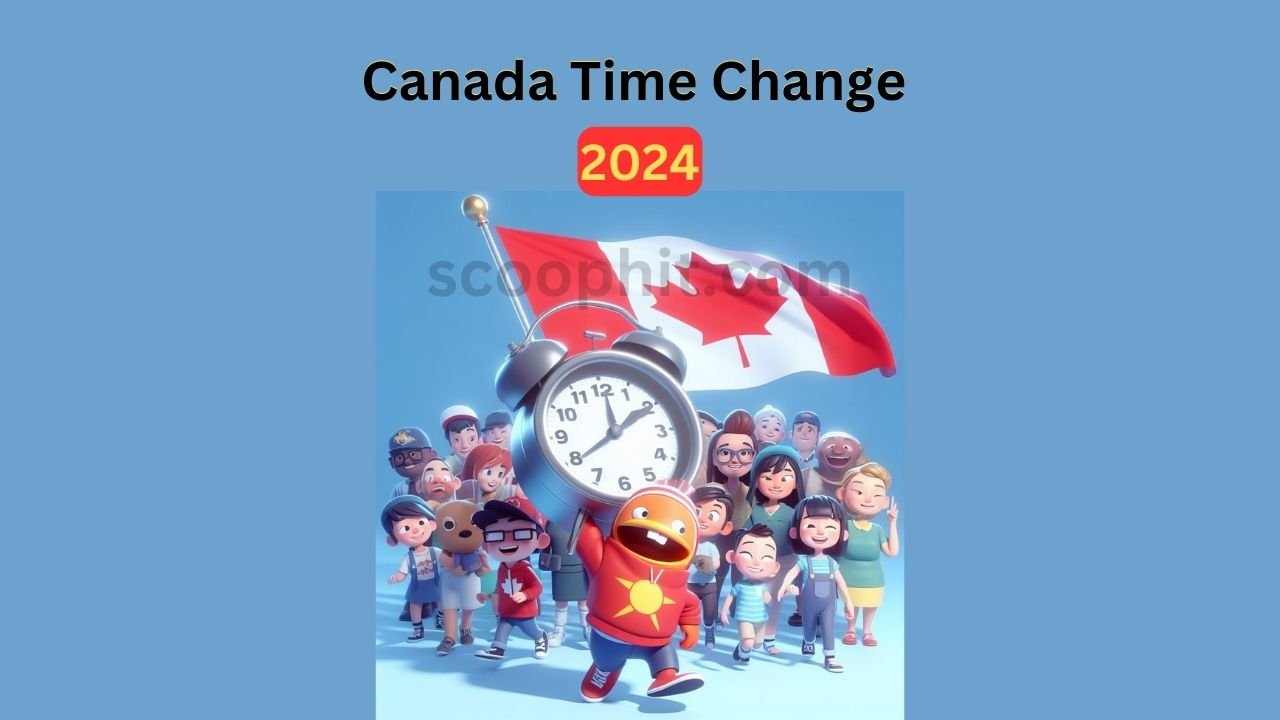Hello there! Ever heard of Canada Time Change? It’s this cool tradition where we move our clocks ahead by an hour and then back again. Why, you ask? Well, we want to enjoy more daylight in the evening by starting our mornings a bit later. Fun fact: this Time Change thing lasts for about 34 weeks, which is more than 65% of the year!
Table of Contents
Understanding the Dance of Canada Time Change
Let me break down what Canada Time Change is all about. Also known as Daylight Saving Time, it’s like a little dance with our clocks. In the summer, we push them forward by an hour, making our nights brighter. When fall comes around, we roll them back by an hour, making our mornings sunnier. Whether a place follows this clock dance depends on local rules. But guess what? Most of Canada, except a few spots, joins in on the fun! Nine out of 10 provinces and two of the three territories dance to the daylight-saving tune, with some exceptions in provinces like Nunavut.
Also Read :- $264.41 Canadian Child Benefits Arriving: How to Apply Guide
When Time will Change in Canada (Daylight Saving) 2024?
Now, let’s jump into the time-travel details for February 2024. We’re talking about nine provinces, starting this tradition way back in 1908. Mark your calendars for March 10 and November 3. On these Sundays, we either “spring forward” or “fall back.” This year, on March 10, we’ll lose an hour as we move our clocks forward at 2 a.m. EST. The sunset and sunrise will be fashionably late that day. And come November 3, we’ll turn our clocks back at 2 a.m. EST, giving us an earlier sunrise and sunset. More daylight to enjoy!
Historical Roots of Daylight Saving Time in Canada
Now, a little history lesson. The idea of saving daylight goes way back to 1784, thanks to Benjamin Franklin. It started as a funny suggestion to save candle money. But in 1907, an Englishman named William Willet took it seriously and proposed Daylight Saving Time. Canada hopped on board in 1908, with Port Arthur, Ontario, leading the way.
In conclusion, even though some folks grumble about adjusting their clocks twice a year, it looks like this tradition will keep going. Get ready to move those clocks again on Sunday, March 10, because there weren’t any big changes to the daylight saving time rules in 2023. Happy time changing!
You may Like :- $7437 Canada Child Benefits 2024 : Eligibility and Important Dates
Frequently Asked Questions (FAQs) about Canada Time Change in February 2024
- What is Canada Time Change, and why does it happen?
- Canada Time Change is the tradition of adjusting clocks by an hour forward and backward. It aims to optimize daylight utilization in the evening by starting mornings an hour later.
- How long does Canada Time Change last in a year?
- The Time Change tradition in Canada spans about 34 weeks or 238 days, covering over 65% of the year.
- What is Daylight Saving Time, and how does it work in Canada?
- Daylight Saving Time involves moving clocks one hour forward in summer and back in fall. It brightens summer nights and winter mornings in Canada.
- Do all provinces in Canada observe Daylight Saving Time?
- Yes, with a few exceptions in certain areas of British Columbia and Saskatchewan, the majority of Canada, including nine provinces and two territories, observes Daylight Saving Time.
- When does Canada Time Change occur in 2024?
- In 2024, the “spring forward” will occur on March 10 at 2 a.m. EST, and the “fall back” will occur on November 3 at 2 a.m. EST.
- How does the clock adjustment affect daylight hours in March 2024?
- On March 10, sunrise and sunset will be around one hour later than the previous day, providing more daylight in the evening.
- What historical events shaped Daylight Saving Time in Canada?
- Daylight Saving Time was first observed in Canada in 1908, influenced by the ideas of Benjamin Franklin and the proposal of William Willet in 1907.
- Are there any changes expected to Canada Time Change in the near future?
- As of now, there are no significant legislative changes related to Daylight Saving Time in Canada for 2023, indicating the continuation of the tradition.
- Why do Canadians continue the twice-yearly clock adjustments?
- Despite some disapproval, the twice-yearly clock adjustments persist, aiming to make the most of daylight and maintain the tradition established in 1908.
- How can I stay informed about Canada Time Change updates and details?
- Stay informed by checking reliable sources for updates on Canada Time Change, including official announcements and resources providing complete information.
